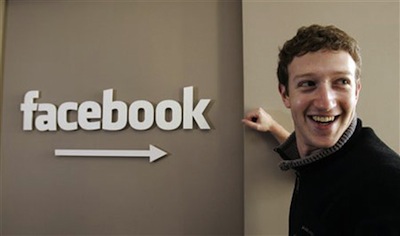
Burston Marsteller has been trying to pitch reporters on a story around the supposed privacy shortcomings in an obscure Google product called Social Circles. But it wasn’t disclosing the company that had hired it, until it was revealed by The Daily Beast. Facebook’s response now that the secret is out? The company says it stands by its criticisms of Google but should have “presented them in a serious and transparent way.”
[aditude-amp id="flyingcarpet" targeting='{"env":"staging","page_type":"article","post_id":259418,"post_type":"story","post_chan":"none","tags":null,"ai":false,"category":"none","all_categories":"business,media,social,","session":"C"}']Here’s the statement from Facebook:
No ‘smear’ campaign was authorized or intended. Instead, we wanted third parties to verify that people did not approve of the collection and use of information from their accounts on Facebook and other services for inclusion in Google Social Circles—just as Facebook did not approve of use or collection for this purpose. We engaged Burson-Marsteller to focus attention on this issue, using publicly available information that could be independently verified by any media organization or analyst. The issues are serious and we should have presented them in a serious and transparent way.
You and your readers can look at the feature and decide if they have approved of this collection and use of information by clicking here when their Google account is open: http://www.google.com/s2/search/social. Of course, people who do not have Gmail accounts are still included in this collection but they have no way to view or control it.
The PR firm, meanwhile, says the campaign was “not at all standard operating procedure and is against our policies, and the assignment on those terms should have been declined.” Again, no real apology and only the barest of nods to the idea that there was something unseemly and dishonest about the campaign. It’s only a few degrees removed from, “Well, we’re sorry we got caught.”
AI Weekly
The must-read newsletter for AI and Big Data industry written by Khari Johnson, Kyle Wiggers, and Seth Colaner.
Included with VentureBeat Insider and VentureBeat VIP memberships.
Is it really that big a deal? Both companies argue that they weren’t asking reporters to print any inaccurate information about Google, but rather to verify the criticisms for themselves. But if it’s all so harmless, why did Facebook try to hide its involvement in the campaign? After all, Google hasn’t hesitated to criticize Facebook. Presumably it’s because Facebook and the PR firm both realized that those criticisms would be viewed much more skeptically once everyone knew their source. Which is exactly what’s happening now.
VentureBeat's mission is to be a digital town square for technical decision-makers to gain knowledge about transformative enterprise technology and transact. Learn More
